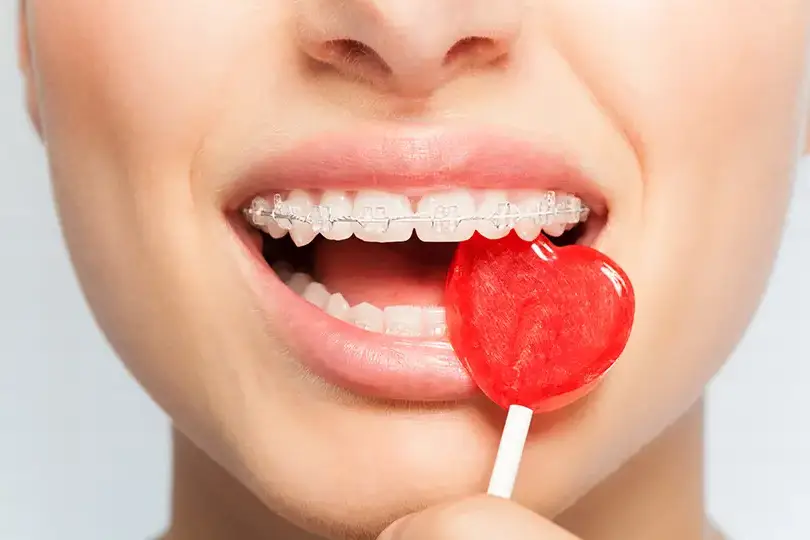Today, more and more studies confirm: oral health is directly linked to the condition of the heart and blood vessels. At first glance, what could teeth have in common with a heart attack? Yet gums often become the “weak spot” that triggers a chain of inflammatory processes in the body.

In this article, I, as a doctor, will explain in detail why periodontitis is not just a dental issue, but a serious risk factor for cardiovascular disease.
Why Gums Matter More Than You Think
Most people, when speaking about teeth, think of cavities, whitening, or prosthetics. But the true impact on health comes from the condition of the gums.
Periodontitis is a chronic inflammation of the tissues that hold the tooth. According to WHO data, it affects more than 50% of people over 30. The disease develops slowly and almost invisibly: a person can live with inflammation for years without suspecting the risks.
Early signs include:
- bleeding while brushing teeth or eating hard foods,
- redness and swelling of the gums,
- bad breath,
- loose teeth.
Behind these symptoms lies a process that destroys periodontal tissues and opens the “gateway” for infection into the body.
How Gums Are Connected to the Heart
The mechanism is fairly simple, but dangerous.
- With inflammation, periodontal pockets become permeable to bacteria.
- Microbes and their toxins enter the bloodstream.
- The immune system reacts with chronic inflammation.
- Fatty plaques begin to form in the blood vessels.
These plaques narrow the arteries and disrupt blood flow. If such a plaque ruptures, a clot forms — and that is what causes a heart attack or stroke.
Scientists have even found oral bacteria inside atherosclerotic plaques in patients with cardiovascular disease. This is direct evidence that infection from the mouth can “travel” throughout the body.
Numbers Worth Knowing
- People with severe periodontitis have a 2–3 times higher risk of heart attack and stroke compared to those with healthy gums.
- According to the American Heart Association, up to 50% of cardiovascular cases are linked to chronic inflammation, including inflammation from the oral cavity.
- Even mild gum bleeding increases the level of C-reactive protein (CRP) — a marker of systemic inflammation.
Who Is at Risk
The link between periodontitis and the heart is especially dangerous for people who already have additional risk factors:
- high blood pressure,
- diabetes,
- high cholesterol,
- smoking,
- obesity,
- hereditary predisposition to cardiovascular disease.
In such patients, the strain on the heart and vessels is already high. Chronic gum inflammation works like an “accelerator,” bringing a heart attack or stroke closer.
Why This Discovery Matters for Medicine
Just 20–30 years ago, dentistry and cardiology were seen as separate fields. Today, they share a common mission: preventing systemic diseases.
- Cardiologists now consider oral health when assessing cardiovascular risk.
- Dentists increasingly explain to patients that treating periodontitis is not just about saving teeth, but also about protecting the heart.
In leading clinics in the U.S. and Europe, joint programs already exist: patients with cardiovascular disease are sent for mandatory dental checkups, and vice versa.
How Oral Inflammation Affects Blood Vessels
To grasp the scale, let’s go deeper.
- Bacteria release toxins — endotoxins.
- These damage the endothelium, the inner lining of blood vessels that ensures elasticity.
- Lipids (fats) and immune cells settle at the site of damage.
- Over time, an atherosclerotic plaque forms.
It’s a vicious circle: inflammation in the mouth → inflammation in the vessels → loss of arterial elasticity → increased blood pressure and clot risk.
What Can Be Done for Prevention
The good news is that we have real tools to protect the heart through oral care.
- Brush your teeth twice a day — at least 2 minutes.
- Use floss or an irrigator — a toothbrush doesn’t reach between the teeth.
- Visit a dentist every 6 months — even if nothing hurts.
- Eat a balanced diet — less sugar, more vegetables and fiber-rich foods.
- Quit smoking — tobacco damages gums and blood vessels.
- Control chronic diseases — keep blood pressure, sugar, and cholesterol in check.
Bottom Line: A Smile Can Save the Heart
Oral health is not only about beauty. It’s about blood vessels and life expectancy.
- Gums are an indicator of the body’s overall condition.
- Bleeding is a signal that the body is fighting chronic inflammation.
- Simple hygiene practices can reduce the risk of heart attack and stroke.
When you pick up a toothbrush, you are caring not just about your appearance but also about your heart.
❤️ A smile is part of cardiovascular prevention. Take care of your gums today so your heart beats longer and stronger tomorrow.


















